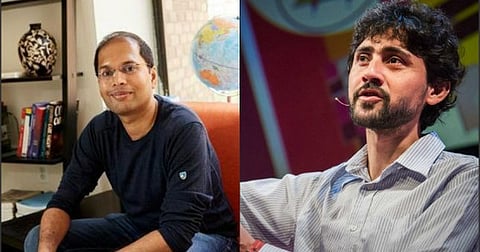
- HOMEGROWN WORLD
- #HGCREATORS
- #HGEXPLORE
- #HGVOICES
- #HGSHOP
- CAREERS
- ABOUT US
- CONTACT US

It’s a well documented fact that India is home to a vast and talented legion of engineers but every now and then there are a few people that stand out even in a pack of extraordinary people. Two such individuals are Dr. Subhash Kot and Dr. Manu Prakash who have just earned international recognition as they were awarded the prestigious MacArthur Grant for exceptional creativity in their chosen fields.
Both winners hailed from Indian IIT’s. Dr. Kot is an alumnus of IIT Bombay and is currently pursuing theoretical computer science at New York University. Dr. Prakash studied at IIT Kanpur and is now an Assistant Professor in the Department of Bioengineering at Stanford University. The fellowship, also referred to as the genius grant and the recipients win a total of $625,000 (approximately 4 crores) over a 5 year period in order to further their research. This year, there were a total of 23 people from a wide range of fields that were awarded the grant by the John D and Catherine MacArthur Foundation.
While there are many, many Indians across the world who are achieving greatness, today we just want to take a minute and congratulate these two scientists for their creativity and dedication to their fields.
Dr. Kot is well known in his field for solving some of the biggest problems of computer complexity and has developed the Unique Games Conjecture.
We’re just as baffled by that sentence as you are, so here’s Dr. Kot to explain it himself.
“If you believe that one specific problem is hard to solve, lots and lots of other problems, which computer scientists are very interested in are also hard to solve.” - Dr. Subhash Kot
Dr. Prakash, aside from being an esteemed faculty member at Stanford, is also credited with the creation of the phenomenal low cost paper microscope that costs less than a dollar. This foldable microscope means that low income and rural areas can finally have access to technology and learning that was previously out of their reach.
We’ll let Dr. Prakash answer your questions himself
“Often a challenge in technology deployment is building engaged local communities that take ownership of ideas and deployment. I’d started thinking about this connection between science education and global health,” - Dr. Manu Praksh
Feature Image Courtesy yourstory.in and thehindu.com
Words: Shireen Jamooji
